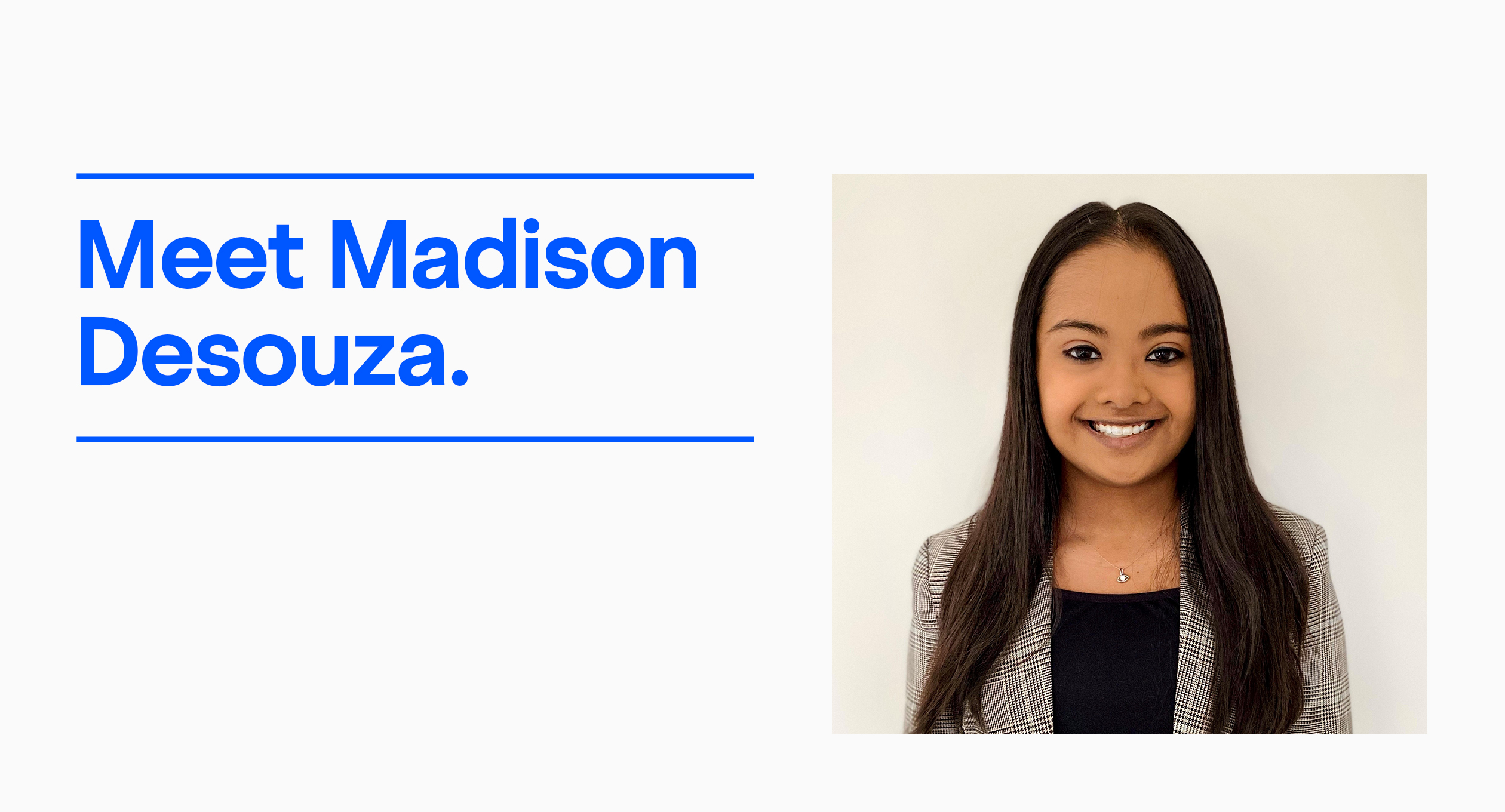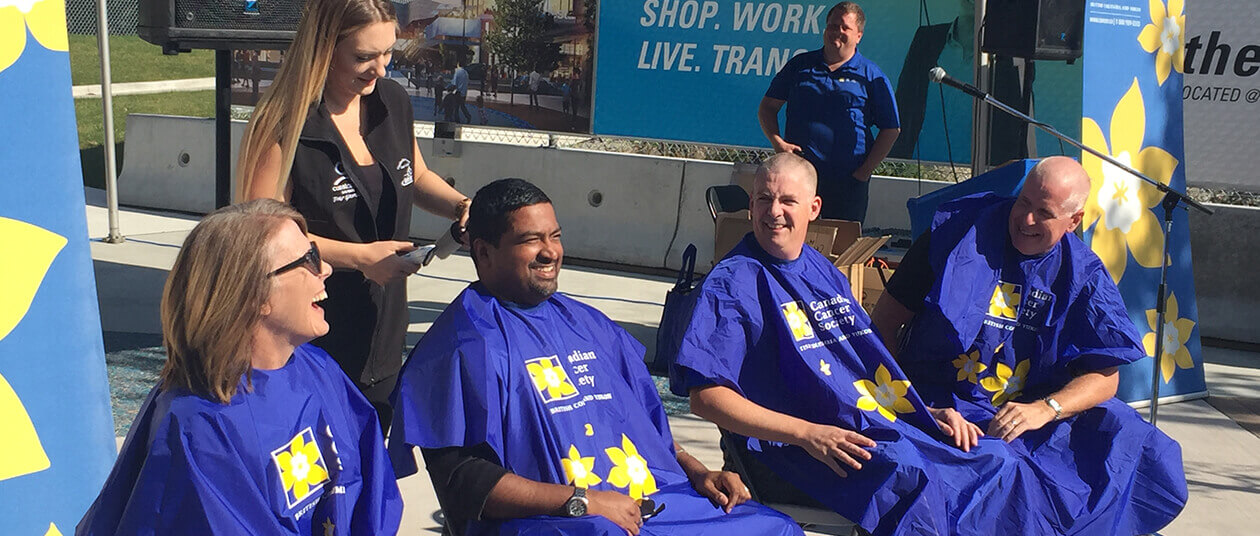October is National Disability Employment Awareness Month, an opportunity for Coast Capital to champion equal opportunities for people of all abilities. When viewed through the lens of inclusion, employment provides Canadians with an opportunity for economic security and a sense of fulfillment and purpose. Yet, the employment rate for adults with disabilities is three in five (59%) persons compared to four in five (80%) of those without disabilities.* This is often due to misconceptions around people with disabilities and workplace inequity. We want to help change this.
Each week in October, we’ll profile a member of the Coast team to highlight their strengths and create awareness of their experience working at Coast.
*From Statistics Canada Canadian Survey on Disability Reports from 2017.
Meet Madison Desouza, Investment Administrative Assistant
What do you love about your job?
I love getting to know all the people that I work with, both my Toronto team and my team in Vancouver. Everyone has been very supportive in helping me learn. They take time to train me to do certain projects and create a job aid for me because I am a visual learner. I like how I can always reach out to my team and offer my help for other projects as well. I have enjoyed learning about the software used to input data into the system. It helps auto-populate the information for me and makes it easy to read. I love this job because it has given me the chance to learn more, be a part of meetings and team socials, and develop skills like writing meeting notes. I love going downtown to the office and getting a different work environment and seeing everyone in person.
What barriers have you faced as a person with a disability in the workforce?
When I first started at Coast Capital Saving, I had to go through the online courses that all new employees must complete. Some of the information in the courses were difficult for me to understand and get tested on. I tried my best to answer the questions correctly, but it was a struggle for me in the beginning stages. I had to keep retrying the quizzes and eventually I got better at it and passed. For me I am a visual learner, so when I was first starting my projects, it was difficult for me to understand the task when explained to me in a meeting. But, when I was given a visual job aid to walk me through each step, I was able to follow it step-by-step and I became an expert.
What do you wish more people knew about Down Syndrome?
I wish more people knew that even with Down Syndrome you can still achieve anything you put your mind to. I don’t think my disability has prevented me from doing anything in my life. It has made me work a little bit harder to achieve my goals. When I started Coast, in the beginning it was a little difficult for me, but after lots of practice and help from my team, I have been successful in my job and am really enjoying myself. I see myself as having a lot of abilities and I enjoy the challenges that are given to me from time to time. My family has always told me practice makes perfect. I feel that if I put my mind to it, I can do anything and I want anyone else with a disability to know that they can do it too!
***************
Coast Capital takes a person-first approach to disability. We understand that disability is complex. It reflects an interaction between the person and the society in which they live. Physical and non-physical workplace barriers can limit an individual’s full and equal participation.
A disability can occur at any time in a person’s life. Some people are born with a disability while others develop a disability later in life. It can be permanent, temporary, or episodic. Disability can steadily worsen, remain the same, or improve. It can be very mild to very severe.
Coast Capital’s definition of disability builds upon how disability is defined in the Accessible Canada Act. It demonstrates that disabilities are socially constructed. Disabilities emerge from the relationship between the individual and society. At Coast Capital, this definition reminds us that it is our responsibility to remove barriers for persons with disabilities because barriers are created and reinforced by the ways we think and act as a society.



